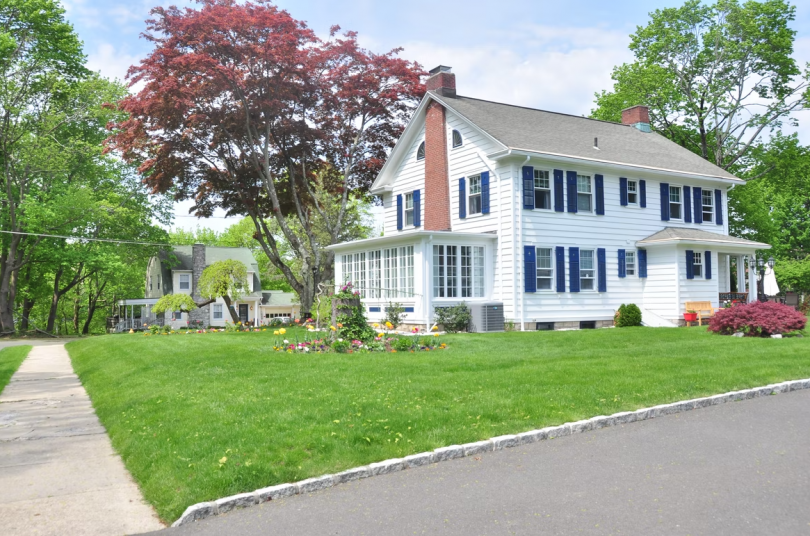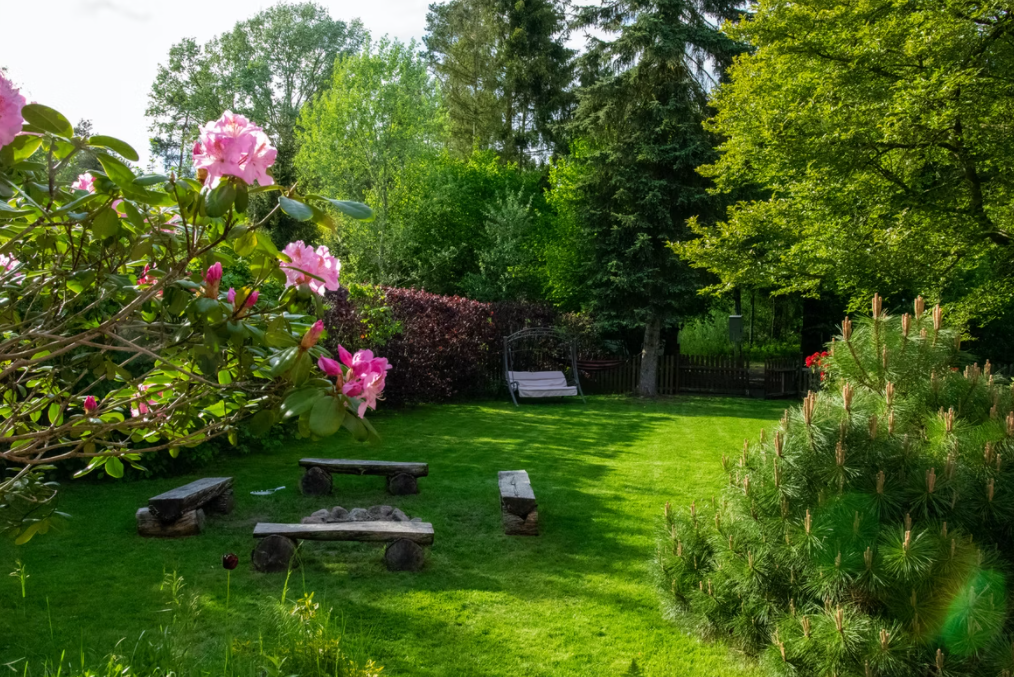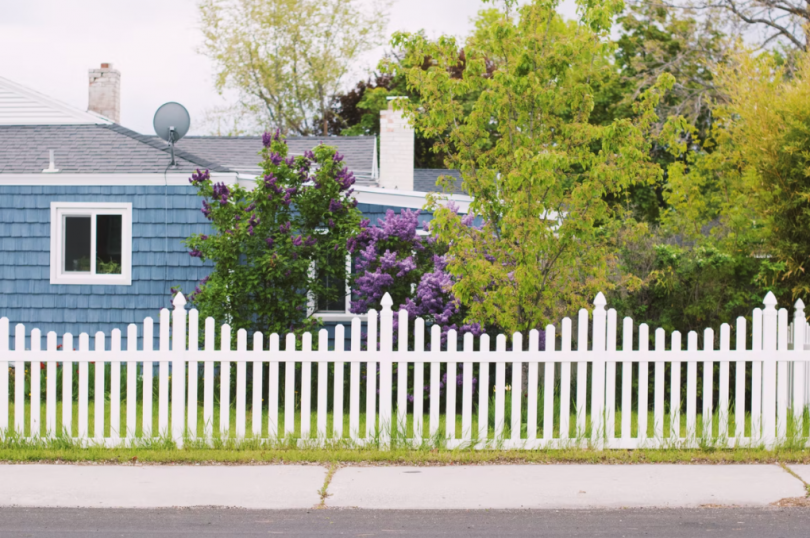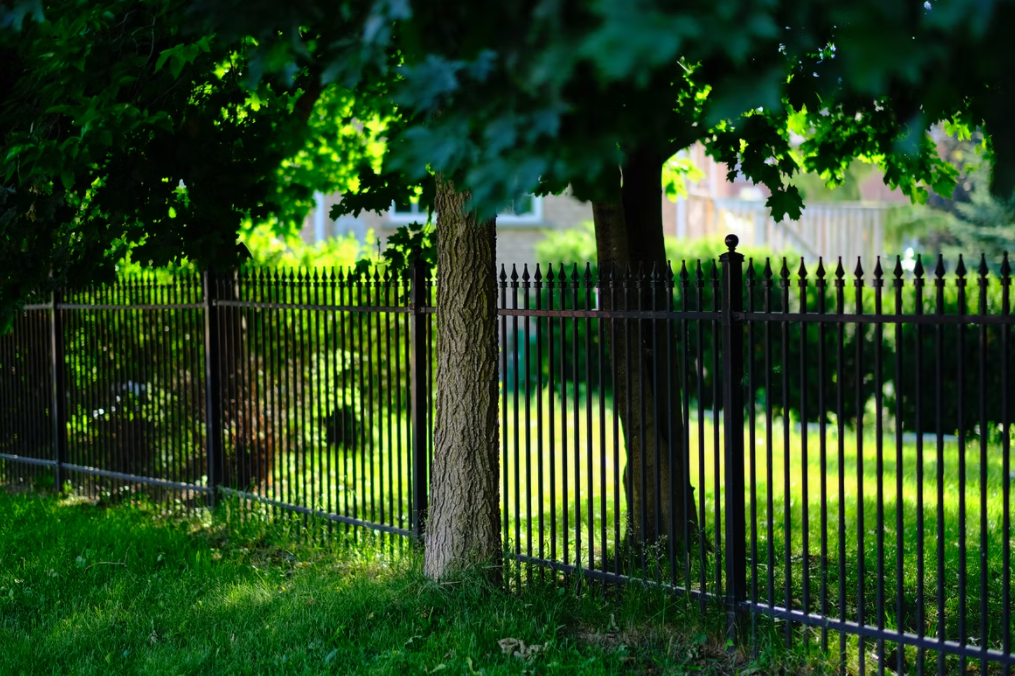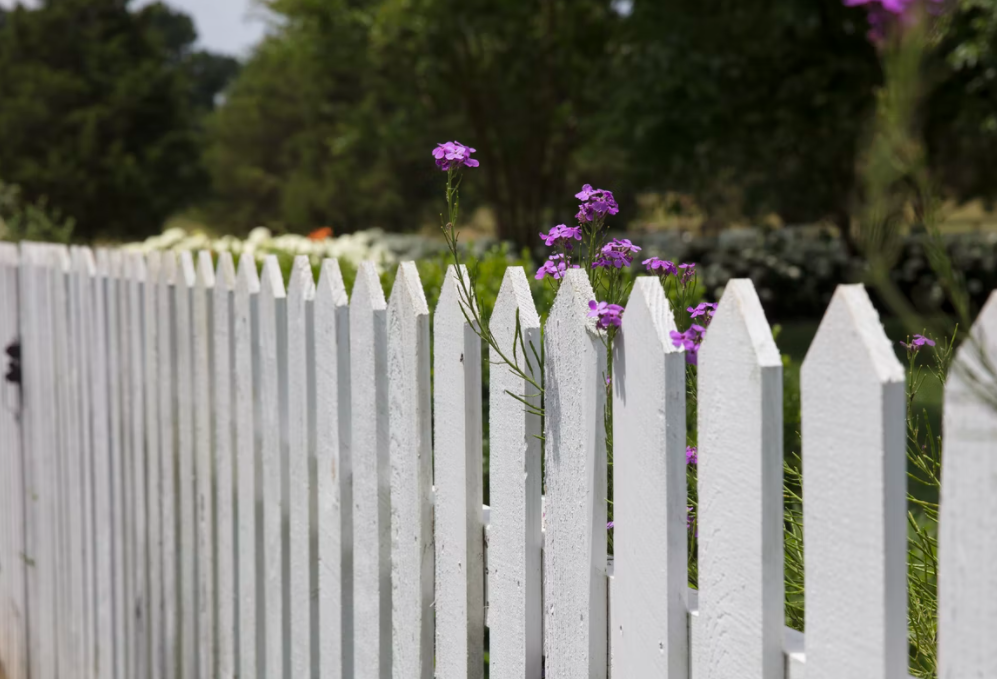Make your lawn look it’s best with these tips on how to make your grass grow in shady areas!
We all know keeping a lawn lush and green is one of the many things homeowners strive for. A healthy lawn not only makes our home look it’s best, but it also increases our home’s property value. A yellowing lawn can easily make your home look abandoned and unkept. Maintaining your lawn is not as simple as it looks, especially when we have areas of our lawn that are constantly shaded. Keeping grass growing in those areas can sometimes be difficult, so we have put together some tips on how to help your grass grow in the shade!
Use Less Fertilizer
Grass that is in constant shade needs much less fertilizer than grass that growing with constant sun exposure. All you need to make your grass in the shade grow, is spread a thin layer of compost in the spring. Make sure to apply the compost before seeding. If you have problems with dampness, aerate your lawn to get the air and water flowing. Make sure to fertilize your lawn before aerating.
Hire a Lawn Care Company
Sometimes no matter what we do doesn’t work. It could be that you do not have the right equipment, or are doing something plain wrong that your grass refuses to grow. If you ever find yourself in a rut, consider calling a lawn care company like the lawn care experts at Gecko Green. Sometimes it’s best to leave it to the lawn care professionals to do the job right, the first time around.
Trim Back Trees
Healthy grass will need at least 3-4 hours of sunlight per day, but if your problem area persists consider pruning back trees. Pruning trees and thinning them out can let more light in to your lawn. Prune your trees as much as you can without hurting their health or shape. If your grass is in deep shade, it will be next to impossible to grow it so it’s very important that we try to get as much sunlight as possible.
Keep Your Grass Longer
Grass that is in the shade should be kept at a longer length than grass kept in constant sunlight. It is recommended to keep your grass at a height of 3 inches to allow extra surface area for photosynthesis to occur. This will allow the sun to reach more surface area of the grass and provide extra energy for it to grow. You may have to adjust the blades on your lawn mower to cut the shaded areas of your backyard a little longer than the sunny parts.
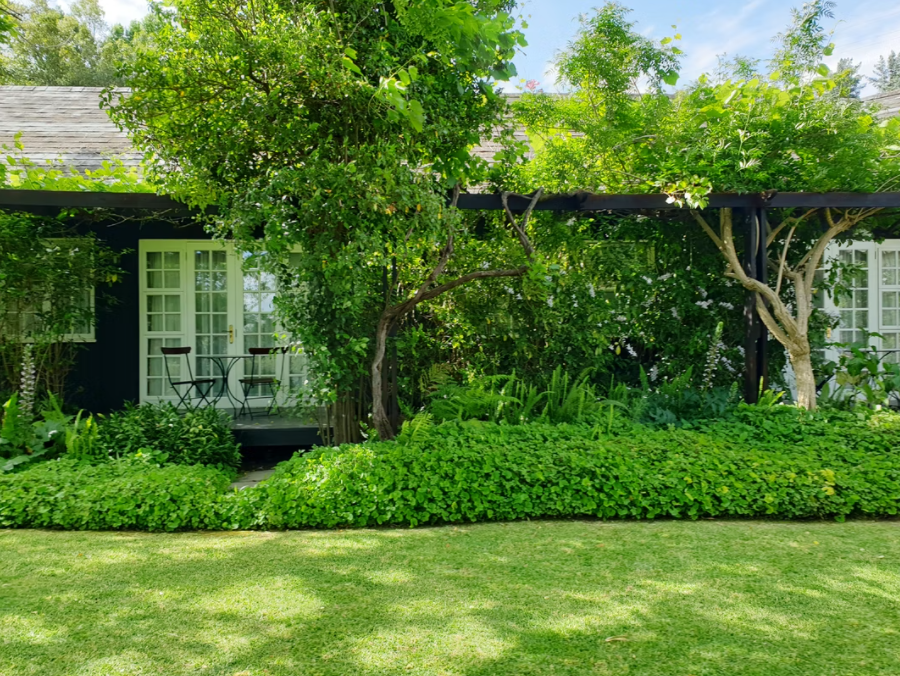
Make Sure not to Overwater
One mistake that many homeowners do is overwatering their lawn. We all know that grass needs lots of water to stay green especially in the summer months but if your grass is in constant shade you could be doing more harm than good. Shade prevents quick evaporation of dew or surface water from watering which in return causes dampness in your grass. A damp grass can encourage disease and mold to grow. Only water when absolutely necessary, and when you do water your grass in the shade water deeply instead of doing surface watering.
Seed in the Fall
Make is a tradition to overseed your lawn’s shady areas in the fall. Overseeding is an easy way to fill in thin or bald spots that form during the summertime. If you do this every fall you will be sure to have those bald spots filled come spring time!
Making your lawn lush and green if it’s in a shaded area can be a tricky process if you don’t know the right tricks! If you follow our guide you will be sure to keep your lawn looking it’s best, which will in return make your home look great and possibly increase your home’s value!

